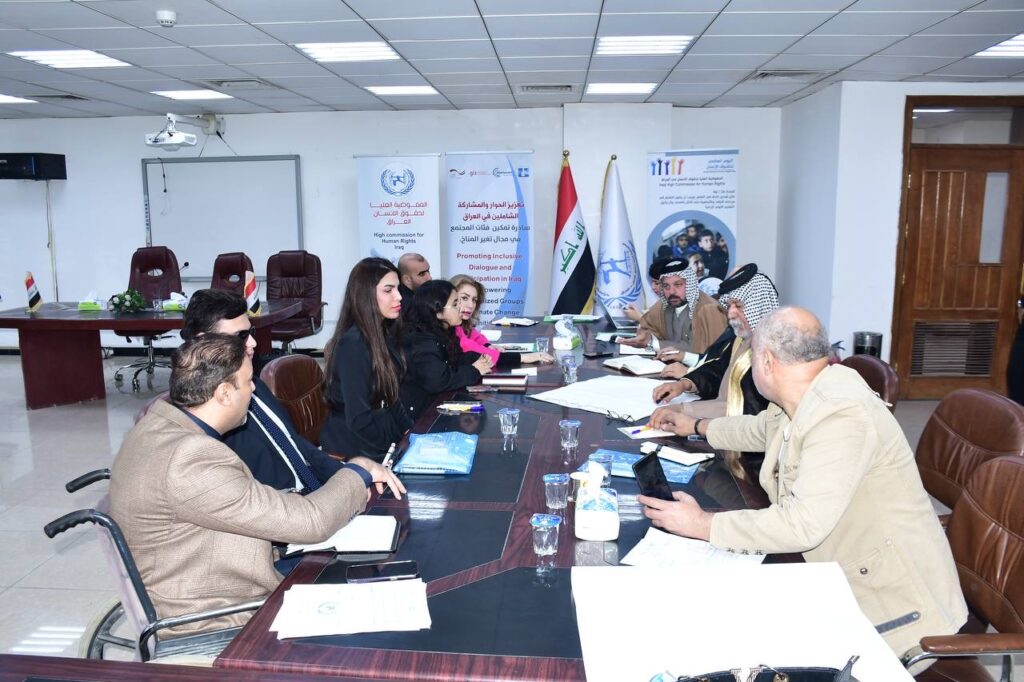Deepening dialogue on climate change in Iraq
Last month, we concluded a series of dialogue sessions addressing the impacts of climate change in Iraq. These were organised within the framework of our project “Quality and Effectiveness in Dialogue and Participation in Iraq and in collaboration with the organisation Ufuq, They were part of an ongoing project effort to engage diverse stakeholders in meaningful discussions about environmental challenges and solutions.
The first two sessions were held at the Iraqi High Commission for Human Rights in February and focused on water pollution and air pollution in Baghdad respectively. Discussions revolved around the causes, impacts, and potential solutions to the water pollution issue, aiming to develop community-driven strategies for improvement. In addition, participants explored the sources of air pollution, its health consequences, and ways to mitigate these effects.
Building on these initial discussions, the final two sessions on 23-24 and 28-29 April addressed two additional critical topics: sanitary landfill management and the ramifications of population growth on Iraq’s environment.
Sanitary landfill management emerged as a pivotal issue, with participants examining the current state of waste disposal practices, particularly in urban areas like Baghdad. They explored strategies to improve waste management systems to mitigate environmental degradation and public health risks.
As the country’s population continues to expand, the strain on natural resources intensifies, exacerbating challenges such as water scarcity and air pollution. Participants discussed the urgent need for sustainable development practices to manage these growing pressures.
Each session had the following structure: a one-day workshop for knowledge-sharing and an interactive dialogue session to facilitate practical engagement and problem-solving. These dialogues aimed to foster community engagement and generate actionable insights, with contributions from representatives of minority groups, marginalized communities, and people with disabilities. By fostering dialogue between diverse stakeholders, these sessions emphasize the need to create a collaborative approach for addressing the environmental challenges facing Iraq.
The outcomes of these sessions will be used in the creation of an orientation paper developed by Ufuq and climate change experts, guiding future actions for sustainable development in the field of climate change in Iraq.
